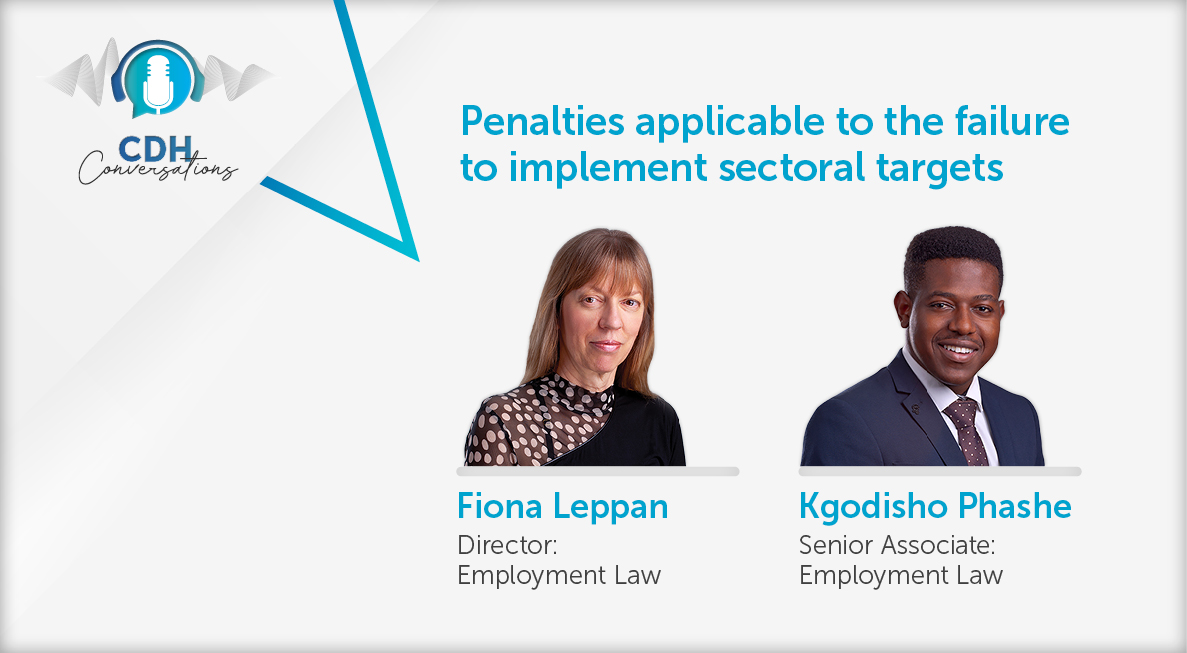Minister of Police’s attempt to condone his nearly three-year delay of litigation dismissed with costs
At a glance
- In 2016, a transgender woman was subjected to unlawful treatment at the hands of South Africa Police Service (SAPS) officials in contravention of SAPS’ Standard Operational Procedure for the Detention of Transgender Prisoners, which led to her sexual assault and rape.
- In pursuit of justice, she launched a damages claim against the Minister of Police (Minister) for his vicarious liability for the acts committed by the SAPS officials on the night in question. What followed was nearly three years during which the Minister took absolutely no substantive steps whatsoever in the matter.
- The plaintiff pursued her application for default judgment, and in a belated response, the Minister delivered an application seeking to condone the then nearly three-year delay in the delivery of his plea. The court found that it would be contrary to the interests of justice to grant the condonation, and found the Minister's conduct to warrant a cost order.
Ms B was arrested by the South African Police Service (SAPS) after yet another physical and verbal assault at her family home. When arresting her, SAPS officials sprayed her with pepper spray, grabbed her by the back of her pants and threw her into the police vehicle. Once at the SAPS detention facility, Ms B was placed in a cell with three men. This, despite her protesting that she identifies as female and that she very obviously presents as female. That night, Ms B was sexually assaulted and raped by her cellmates.
SAPS officials’ placement of Ms B in a cell with men was in contravention of SAPS’ own Standard Operational Procedure for the Detention of Transgender Prisoners (Procedure). This Procedure prescribes that all transgender persons must be detained in separate detention facilities at the police station where they are arrested. The Procedure goes as far as to prescribe that in the event of such a separate detention facility not being available at the police station where the arrest was effected, then the transgender person must be transported and detained at an identified facility within the cluster. This is the extent of the protection meant to be afforded to transgender persons by SAPS. On the night of Ms B’s arrest, as many as six other cells, some completely empty, were available at the local police station in question. SAPS officials chose to ignore this, ignore their internal Procedure, and instead told Ms B that “God made you a man” and threw her into an environment that would result in one of the most profoundly traumatic experiences of her life. During the entire period in which she was held, no SAPS officials conducted a check on her cell, once again ignoring their own internal procedures.
In November 2019 Ms B launched a damages claim against the Minister of Police (Minister) for his vicarious liability for the acts committed by the SAPS officials on the night in question. Her claim was grounded in the Minister’s liability for the wrongful and deliberate conduct of his employees, which directly caused Ms B to suffer grave harm. What followed was nearly three years during which the Minister took absolutely no substantive steps whatsoever in the matter. None at all. The very Minister entrusted with the duty to ensure the protection of all individuals within our country from undue harm – particularly vulnerable individuals such as Ms B – simply ignored a case of extreme sexual violence, prompted by his officials’ disregard for their governing procedures. He did so as a member of a state known as a rape capital.
Application for default judgment
The Practice, after several failed attempts to engage the state attorney and extract the Minister’s plea, set Ms B’s application for default judgment down for hearing in February 2022. The Minister, having by then done nothing for two years, derailed this hearing by requesting a postponement thereof two court days prior, notwithstanding having been aware of the hearing date for four months. Over the period between February and August 2022, the progression of the matter was once again delayed by the Minister’s requests for postponements, but during which the Minister took no steps whatsoever to move the matter forward. Once again, the day before Ms B was to give evidence in support of her application for default judgment, the Minister delivered an application to condone the then nearly three-year delay in the delivery of his plea.
Application for condonation – Minister’s submissions
The application for condonation – vehemently opposed by the Practice on Ms B’s behalf – came before Western Cape Division Acting Judge Van Heerden on 8 February 2022. Van Heerden AJ was tasked with determining whether the Minister’s application met the requirements for condonation, namely: good cause for the delay; a bona fide defence; and that it was in the interests of justice that condonation be granted.
The Minister, acknowledging that his conduct had delayed proceedings, separated the delays into three periodic stages – the first stage being from February 2020 to April 2022 (26 months); the second stage between April 2022 and June 2022 (two months); and the third stage between June 2022 and August 2022 (three months).
The first stage delay commenced after the Minister was already out of time for the delivery of his plea and was therefore barred from doing so. This stage was allegedly the result of the Minister’s investigation into the merits of Ms B’s claim. The Minister alleged that, during the 26 months, his office: held consultations with SAPS officials who were witnesses; attempted to trace the inmates who were detained with Ms B to obtain their version of events (but which they to this day have failed to do); and was placed into an “invidious position” by not having Ms B’s identity documents, which they submitted were needed to “make an informed decision regarding the merits of [Ms B’s] claim”. The court scoffed at these arguments, finding that 26 months to conduct the investigations; obtain testimony from their own employees; and collect Ms B’s identity documents from their own Custody Register or elsewhere was “difficult to comprehend”. The court found the first stage delay to be avoidable and not bona fide.
The judgment makes haste in dismissing any suggestion of good cause for the second stage. Here, the Minister submitted that the delay was caused by an investigation into when Ms B began her transition to the female gender, which investigation could only commence when the request was made for Ms B’s identity documents in April 2022. No explanation was offered for why the Minister could not access this information from SAPS’ own records, or make the request sooner. The court found that “the reasons and explanations [are] wholly unsatisfactory”. To the court, such an investigation did not and could not have caused reasonable delay for an already long overdue plea and condonation application.
Finally, the court accepted the Minister’s reason for the third stage delay being that of the state’s procurement process of counsel. Noting the “extensive procurement and administrative process” which Government must follow in appointing a legal representative, the court accepted this delay as bona fide.
In an attempt to put up a bona fide defence, the Minister made two submissions, one of which was procedural in nature and was that Ms B should be barred from pursuing her claim due to her failure to comply with the time periods prescribed in the Institution of Legal Proceedings against Certain Organs of State Act 40 of 2002. The other was of a substantive nature and can only be described as appalling. The Minister alleged that Ms B consented to the acts of sexual violence. Minister Cele alleged so partly because Ms B did not immediately report the acts of sexual violence against her to the SAPS officials. The very officials who told her that “God made her a man” and who placed her in harm’s way in the first place. An astonishing and vile speculation indeed. In light of Ms B’s vehement denial of consent and that, as it was, there was no evidence from the implicated men of consent (considering they had been untraceable for nearly three years), the court found that these “allegations therefore remain purely speculative”. In respect of the alleged procedural defence, the court succinctly determined that Ms B still had the opportunity to pray for condonation for her relatively short lateness, to which the judgment noted “that good prospects exist”. Accordingly, the court concluded that the Minister did not have any bona fide defences.
In concluding, the court found that it would be contra the interests of justice to grant condonation, considering Ms B “forms part of a vulnerable category of persons in our society”, and the Minister’s “lackadaisical approach adopted…in pursuing its investigations, securing evidence and the bringing of the application for condonation”. In respect of the latter, the court found the Minister’s conduct to warrant a cost order.
Our Practice is relieved that the court found that it would be unjust to condone the Minister’s delays and disregard for Ms B’s rights to see justice done. Our Practice continues to represent Ms B in her application for default judgment against the Minister. We are driven to assist vulnerable members of society where their rights have been unjustifiably infringed, particularly so when at the hands of state officials. This judgment serves as a stark reminder to those entrusted with the protection of all members of society and their rights, that their refusal or failure to do so will be met with consequence.
The information and material published on this website is provided for general purposes only and does not constitute legal advice. We make every effort to ensure that the content is updated regularly and to offer the most current and accurate information. Please consult one of our lawyers on any specific legal problem or matter. We accept no responsibility for any loss or damage, whether direct or consequential, which may arise from reliance on the information contained in these pages. Please refer to our full terms and conditions. Copyright © 2026 Cliffe Dekker Hofmeyr. All rights reserved. For permission to reproduce an article or publication, please contact us cliffedekkerhofmeyr@cdhlegal.com.
Subscribe
We support our clients’ strategic and operational needs by offering innovative, integrated and high quality thought leadership. To stay up to date on the latest legal developments that may potentially impact your business, subscribe to our alerts, seminar and webinar invitations.
Subscribe


